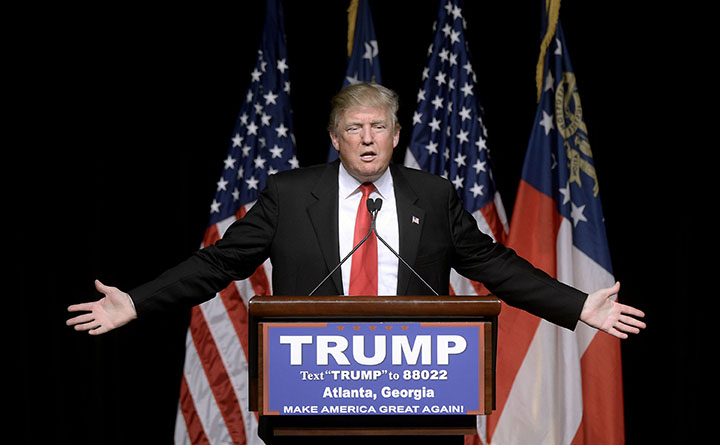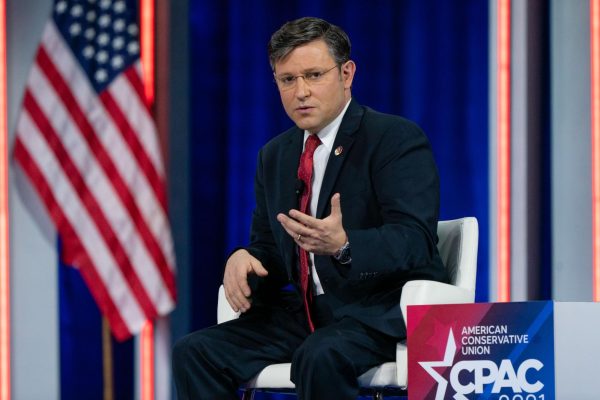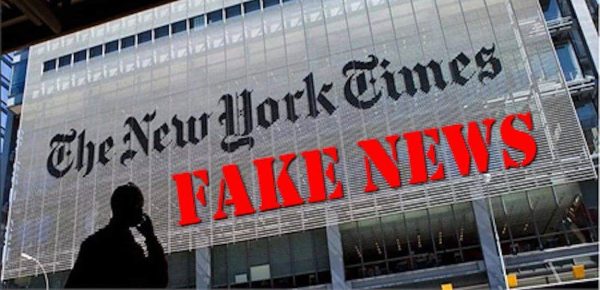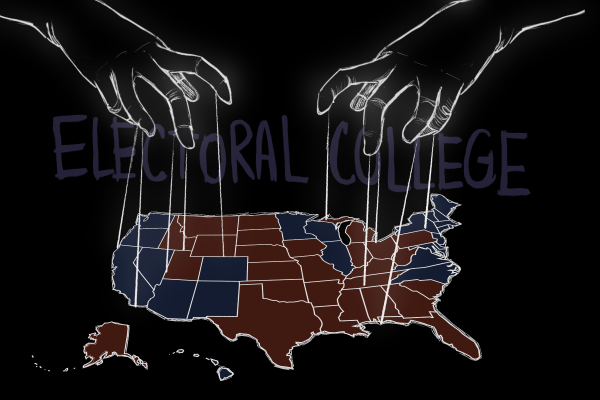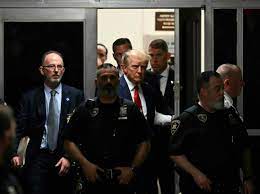The Trump Paradox
Republican presidential candidate Donald Trump speaks during a campaign rally at the Georgia World Congress Center in Atlanta on Sunday, Feb. 21, 2016. (Olivier Douliery/TNS)
For over two decades now people have claimed that American politics is a battleground for a supposed culture war. They claim that America has undergone an ideological split of massive proportions, that the voters of each party now have vastly different and irreconcilable views.
They claim that, whether it stems from clannish isolation from “foreign” ideas, partisan tactics, or biased media, this separation has come to define every aspect of our political world. Bombastically arriving to shatter these expectations, as he usually does, is Donald Trump.
As everyone now knows, Donald Trump is a billionaire from New York City with aspirations for the presidency. With no prior political experience and very little money spent on advertisements, due to his widespread media coverage, he won the New Hampshire primary and was in second place for the Iowa caucus, showing a legitimate chance at winning the Republican nomination.
These successes paired with high ratings in the polls aren’t very surprising though, considering the 2016 Republican primary has been called “the year of the outsider.” Neurosurgeon Ben Carson and businesswoman Carly Fiorina also garnered much attention for running in the presidential primary before dropping out recently.
What is surprising is Trump’s popularity despite his history in regards to key issues for Republican voters.
As Ted Cruz’s campaign has recently pointed out, Donald Trump has shaky credentials as a social conservative. In a video from 1999 Donald Trump described himself as “very pro-choice” and in 2004 said he would call himself a Democrat because “the economy does better with a Democrat as president.”
Although he recently has made statements supporting the standard Republican pro-choice stance, his official website neglects to even make a tab for it on the Positions page.
Gregory T. Angelo, the leader of a pro-LGBT rights organization in the Republican party, refers to Trump as “one of the best, if not the best, pro-gay Republican candidates to ever run for the presidency” because of Trump’s acceptance of the recent Supreme Court ruling. Trump would seem to alienate conservatives even further with his statement that he would support states deciding on the legalization of marijuana.
Trump even fails the standard Christian Right test for candidacy by being incapable of citing a favorite Bible passage and belonging to a church that refers to him as “not an active member.”
So what’s the deal? How can Trump drink what seems to be political poison time and time again and walk away alive? Why has this only lost him only the votes of evangelicals to Cruz and not the whole party? The answer is fairly simple: populist conservatives don’t just want somebody with conservative ideas, they want somebody with a conservative attitude.
That attitude is characterized by a distrust of political authority, a direct no-nonsense approach, and not just respect, but passion for the rights of individuals. What does it matter if the specifics of the conservative vision are indistinct as long as you know nothing will get in the way of that vision?
Compared to the careful and cool-headed words of other candidates, Trump never speaks in halves or maybes. Trump’s base is sick of the caution that other politicians approach every issue with. They hate the “not all muslims are like this” caveat attached to every Obama statement on ISIS.
They distrust the insider political dynasties of Clinton and Bush. They don’t want drawn out compromises or passiveness with Iran or Russia. Trump’s supporters know that there’s no filter between what he thinks and what he says. There’s a reason why Trump’s website has a video about getting rid of political correctness about immigration, education, and campaign funding.
Establishment Republicans need to see that reason, to approach their campaigns with passion and straightforwardness, or they are in big trouble.


